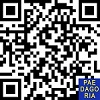CHATGPT SEBAGAI ALAT PENDUKUNG PEMBELAJARAN: TANTANGAN DAN PELUANG PEMBELAJARAN ABAD 21
Abstract
Abstrak: Chat Generative Pre-trained Transformer (ChatGPT) adalah model bahasa generatif yang dikembangkan oleh perusahaan riset kecerdasan buatan OpenAI pada tahun 2015. Penggunaan ChatGPT dalam dunia pendidikan telah menimbulkan tantangan dan peluang khususnya pada pembelajaran abad 21 yang perlu dipertimbangkan secara seksama. Penggunaan ChatGPT seharusnya dipandang sebagai alat pendukung pembelajaran. ChatGPT tidak dapat menggantikan peran guru. Penelitian ini bertujuan untuk untuk mengidentifikasi tantangan dan peluang penggunaan ChatGPT sebagai alat pendukung pembelajaran. Penelitian ini menggunakan studi literatur dengan pendekatan kualitatif. Berdasarkan hasil penelitian, penggunaan ChatGPT dalam pendidikan dapat memberikan peluang untuk pengalaman pembelajaran yang interaktif, fleksibel, dan memperkenalkan siswa pada teknologi khususnya kecerdasan buatan. Hal ini sejalan dengan kompetensi pembelajaran abad 21. Namun penggunaan ChatGPT juga menimbulkan sejumlah tantangan seperti masalah integritas akademis, interaksi sosial, dan ketergantungan pada teknologi yang dapat mengurangi keterampilan berpikir kritis siswa. Untuk memanfaatkan ChatGPT secara efektif dalam pembelajaran diperlukan pendekatan holistik dan terpadu. Pengembangan kebijakan yang jelas mengenai batasan penggunaan ChatGPT dalam pembelajaran, penyesuaian model pembelajaran, dan peningkatan literasi digital siswa dapat diterapkan untuk menghadapi tantangan penggunaan ChatGPT. Dengan pemahaman yang mendalam tentang tantangan dan peluang penggunaan ChatGPT, pemangku kebijakan pendidikan, guru dan siswa dapat mempersiapkan diri dengan lebih baik untuk mengintegrasikan ChatGPT secara efektif dalam lingkungan pembelajaran.
Abstract: The Chat Generative Pre-Trained Transformer (ChatGPT) is a generative language model developed by OpenAI in 2015. Its use in education presents challenges and opportunities, particularly in 21st-century learning, which require careful consideration. ChatGPT should be seen as a supportive learning tool and not a replacement for teachers. The research aims to identify the opportunities and challenges of ChatGPT as a learning aid, using a qualitative literature study approach. Based on research results, Its use in education offers opportunities for interactive, flexible learning experiences and introduces students to technology, especially artificial intelligence, aligning with 21st-century learning competencies. However, it also presents challenges such as academic integrity issues, social interaction concerns, and technology dependence potentially reducing students’ critical thinking skill. Effectively utilizing ChatGPT in 21st-century learning requires a holistic and integrated approach. Clear policy development regarding ChatGPT usage limits, adjustments to learning models, and enhancing students’ digital literacy can address these challenges. With a deep understanding of ChatGPT’s challenges and opportunities, education policymakers, teachers, and students can better prepare to integrate it effectively into the learning environment.Keywords
Full Text:
PDFReferences
Ainun Ratnawati, O., Artuti, E., & Pancarita. (2023). Proses Berpikir Tingkat Tinggi Mahasiswa Menggunakan Kerangka Kerja Teori Mason Berbantuan ChatGPT Pada Analisis Real II. Jurnal Ilmiah Pendidikan Matematika, 6(2), 61–68.
Alawida, M., Mejri, S., Mehmood, A., Chikhaoui, B., & Isaac Abiodun, O. (2023). A Comprehensive Study of ChatGPT: Advancements, Limitations, and Ethical Considerations in Natural Language Processing and Cybersecurity. In Information (Switzerland) (Vol. 14, Issue 8). Multidisciplinary Digital Publishing Institute (MDPI). https://doi.org/10.3390/info14080462
Andrian, Y., & Rusman. (2019). Implementasi Pembelajaran Abad 21 dalam Kurikulum 2013. Jurnal Penelitian Ilmu Pendidikan, 12(1), 14–23.
Cascella, M., Montomoli, J., Bellini, V., & Bignami, E. (2023). Evaluating the Feasibility of ChatGPT in Healthcare: An Analysis of Multiple Clinical and Research Scenarios. Journal of Medical Systems, 47(1). https://doi.org/10.1007/s10916-023-01925-4
Crompton, H., & Burke, D. (2023). Artificial intelligence in higher education: the state of the field. International Journal of Educational Technology in Higher Education, 20(1). https://doi.org/10.1186/s41239-023-00392-8
Deng, J., & Lin, Y. (2022). The Benefits and Challenges of ChatGPT: An Overview. Frontiers in Computing and Intelligent Systems, 2(2), 81–83.
Faiz, A., & Kurniawaty, I. (2023). Tantangan Penggunaan ChatGPT dalam Pendidikan Ditinjau dari Sudut Pandang Moral. Edukatif : Jurnal Ilmu Pendidikan, 5(1), 456–463. https://doi.org/10.31004/edukatif.v5i1.4779
Floridi, L., & Chiriatti, M. (2020). GPT-3: Its Nature, Scope, Limits, and Consequences. In Minds and Machines (Vol. 30, Issue 4, pp. 681–694). Springer Science and Business Media B.V. https://doi.org/10.1007/s11023-020-09548-1
Hanoraga, T., Prasetyo, B., Ghozali, K., Wakhidatus Sholikah, R., Rahman Hariadi, R., & Fathurrohman, J. (2022). Pengembangan Program CHSE Berbasis AI dan Kebijakan Standar Teknologi Pariwisata di Era New Normal untuk Mengontrol Pengunjung Kawasan Eduwisata Mojokerto. In Jurnal Pengabdian Nasional (Vol. 02, Issue 01).
Kharis, S. A. A., Hadi, I., & Hasanah, K. A. (2019). Multiclass Classification of Brain Cancer with Multiple Multiclass Artificial Bee Colony Feature Selection and Support Vector Machine. Journal of Physics: Conference Series, 1417(1). https://doi.org/10.1088/1742-6596/1417/1/012015
Kharis, S. A. A., Hertono, G. F., Irawan, S. R., Wahyuningrum, E., & Yumiati. (2023). Students’ Success Prediction based on the Fuzzy K-Nearest Neighbor Method in Universitas Terbuka. In P. Panen, O. Darojat, & M. Abduh (Eds.), Education Technology in the New Normal (1st ed., pp. 212–218). Routledge.
Kharis, S. A. A., Hertono, G. F., Wahyuningrum, E., Yumiati, Y., Irawan, S. R., Danial, T. A., & Saputra, D. S. (2023). Design of Student Success Prediction Application in Online Learning Using Fuzzy-KNN. BAREKENG: Jurnal Ilmu Matematika Dan Terapan, 17(2), 0969–0978. https://doi.org/10.30598/barekengvol17iss2pp0969-0978
Kharis, S. A. A., Tarigan, A. I., & Idayani, D. (2023). Classification of lung cancer using support vector machine with feature selection based on artificial bee colony rate of change. International Seminar on Mathematics, Science, and Computer Science Education (MSCEIS), 080011. https://doi.org/10.1063/5.0156155
Kharis, S. A. A., & Zili, A. H. A. (2022). Learning Analytics dan Educational Data Mining pada Data Pendidikan. Jurnal Riset Pembelajaran Matematika Sekolah, 6.
Kharis, S. A. A., Zili, A. H. A., & Putri, A. (2023). Prognostic Risk Factors Inducing Acute Hepatitis Contagion in Jakarta, Indonesia: Linear Predictive Model Application. Communications in Mathematical Biology and Neuroscience, 2023. https://doi.org/10.28919/cmbn/8165
Kharis, S. A. A., Zili, A. H. A., Putri, A., & Robiansyah, A. (2024). Unveiling the Potential of Artificial Intelligence in Digital Marketing for Universitas Terbuka. E3S Web of Conferences, 483, 03014. https://doi.org/10.1051/e3sconf/202448303014
Kharis, S. A. A., Zili, A., Zubir, E., & Ihza Fajar, F. (2023). Prediksi Kelulusan Siswa pada Mata Pelajaran Matematika menggunakan Educational Data Mining. Jurnal Riset Pembelajaran Matematika Sekolah, 7. https://archive.ics.uci.edu/
Lancaster, T. (2023). Artificial intelligence, text generation tools and ChatGPT – does digital watermarking offer a solution? International Journal for Educational Integrity, 19(1). https://doi.org/10.1007/s40979-023-00131-6
Lund, B. D., & Wang, T. (2023). Chatting about ChatGPT: how may AI and GPT impact academia and libraries? In Library Hi Tech News (Vol. 40, Issue 3, pp. 26–29). Emerald Publishing. https://doi.org/10.1108/LHTN-01-2023-0009
Nozhovnik, O., Harbuza, T., Teslenko, N., Okhrimenko, O., Zalizniuk, V., & Durdas, A. (2023). Chatbot Gamified and Automated Management of L2 Learning Process Using Smart Sender Platform. International Journal of Educational Methodology, 9(3), 603–618. https://doi.org/10.12973/ijem.9.3.603
Oetomo, R. K., Pamungkas, P. D. A., & Septianingsih, N. (2023). Literasi Digital Mahasiswa Menggunakan Kerangka Pengukuran Literasi Digital Kominfo. Jurnal Mentari: Manajemen Pendidikan Dan Teknologi Informasi, 2(1), 73–83. https://journal.pandawan.id/mentari/article/view/356
Oranga, J. (2023). Benefits of Artificial Intelligence (ChatGPT) in Education and Learning: Is Chat GPT Helpful? International Review of Practical Innovation, Technology And Green Energy, 3(3), 46–50. https://radjapublika.com/index.php/IRPITAGE
Pisica, A. I., Edu, T., Zaharia, R. M., & Zaharia, R. (2023). Implementing Artificial Intelligence in Higher Education: Pros and Cons from the Perspectives of Academics. Societies, 13(5). https://doi.org/10.3390/soc13050118
Rustam, Z., & Kharis, S. A. A. (2018). Multiclass classification on brain cancer with multiple support vector machine and feature selection based on kernel function. AIP Conference Proceedings, 2023. https://doi.org/10.1063/1.5064230
Rustam, Z., & Kharis, S. A. A. (2020). Comparison of Support Vector Machine Recursive Feature Elimination and Kernel Function as feature selection using Support Vector Machine for lung cancer classification. Journal of Physics: Conference Series, 1442(1). https://doi.org/10.1088/1742-6596/1442/1/012027
Setiawan, A., & Luthfiyani, U. K. (2023). Penggunaan ChatGPT Untuk Pendidikan di Era Education 4.0: Usulan Inovasi Meningkatkan Keterampilan Menulis. Jurnal PETISI, 04(01). https://chat.openai.com.
Sobieszek, A., & Price, T. (2022). Playing Games with Ais: The Limits of GPT-3 and Similar Large Language Models. Minds and Machines, 32(2), 341–364. https://doi.org/10.1007/s11023-022-09602-0
Suharmawan, W. (2023). Pemanfaatan Chat GPT Dalam Dunia Pendidikan. Education Journal : Journal Educational Research and Development, 7(2), 158–166. https://doi.org/10.31537/ej.v7i2.1248
Tlili, A., Shehata, B., Adarkwah, M. A., Bozkurt, A., Hickey, D. T., Huang, R., & Agyemang, B. (2023). What if the devil is my guardian angel: ChatGPT as a case study of using chatbots in education. Smart Learning Environments, 10(1). https://doi.org/10.1186/s40561-023-00237-x
Yusanto, Y. (2019). Ragam Pendekatan Penelitian Kualitatif. Journal of Scientific Communication, 1(1), 1–13.
Zili, A. H. A., Hendri, D., & Kharis, S. A. A. (2022). Peramalan Harga Saham Dengan Model Hybrid Arima-Garch dan Metode Walk Forward. Jurnal Statistika Dan Aplikasinya, 6(2).
DOI: https://doi.org/10.31764/paedagoria.v15i2.22039
Refbacks
- There are currently no refbacks.
Copyright (c) 2024 Selly Anastassia Amellia Kharis, Arman Haqqi Anna Zili

This work is licensed under a Creative Commons Attribution-ShareAlike 4.0 International License.
Paedagoria : Jurnal Kajian, Penelitian dan Pengembangan Kependidikan
Fakultas Keguruan & Ilmu Pendidikan | Universitas Muhammadiyah Mataram.
_______________________________________________
 | Paedagoria : Jurnal Kajian, Penelitian dan Pengembangan Kependidikan |
______________________________________________
CURRENT INDEXING:
EDITORIAL OFFICE:


















